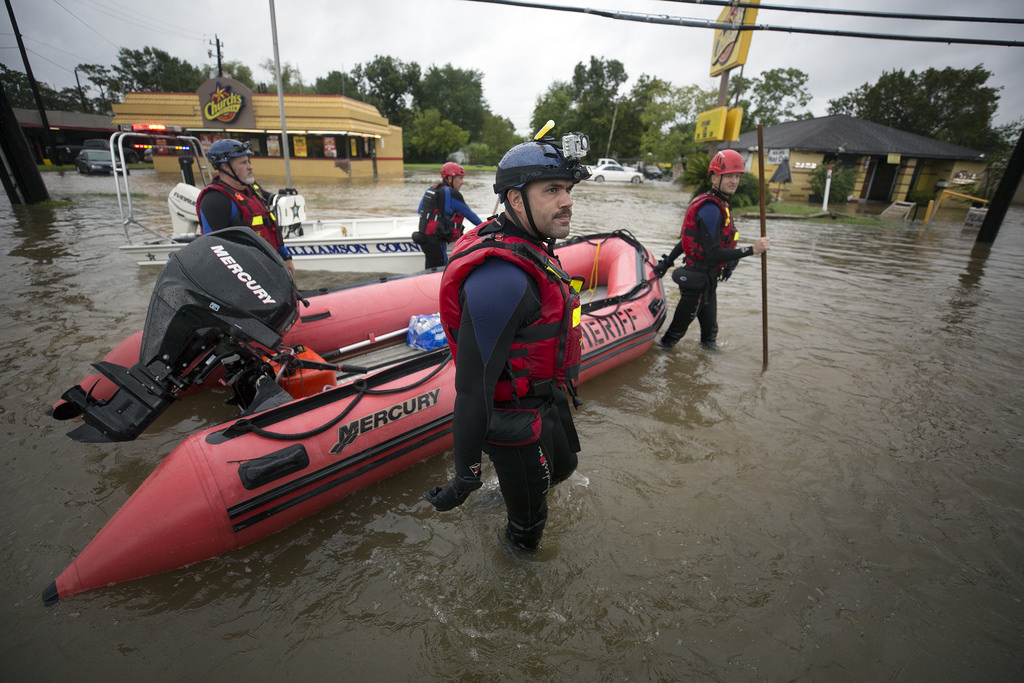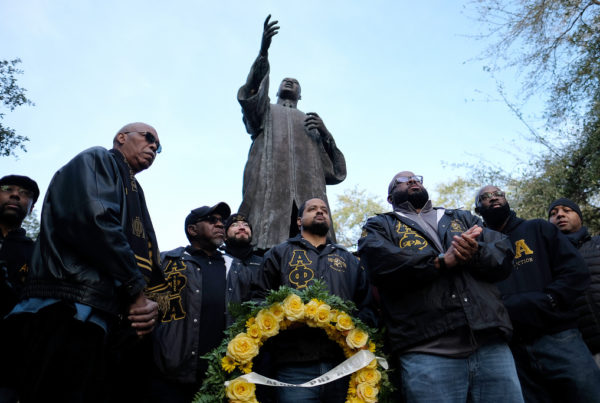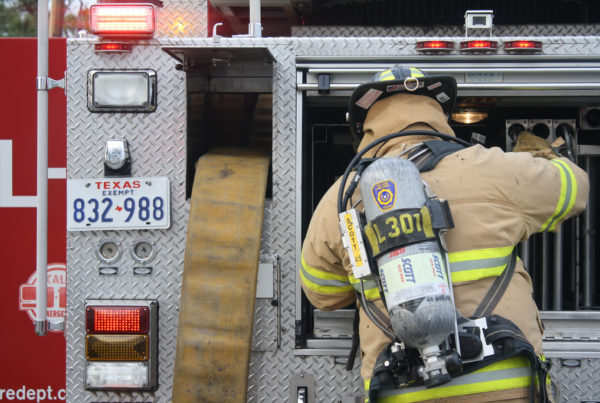State senators drew largely positive feedback on a trio of bills aimed at addressing Harvey recovery and preparation for future hurricanes.
Lieutenant Governor Dan Patrick announced the $3 billion disaster relief package last week.
One of the bills, SB 6, is from state Sen. Lois Kolkhorst, R-Brenham. Her legislation would create a disaster response plan.
Kolkhorst asked a group of experts testifying at a Monday hearing of the Senate Committee on Water & Rural Affairs whether it would be helpful to establish a database for volunteers with specific skill sets and expertise. She said during Harvey, one of her constituents offered up his fleet of 30 airboats. “He navigated the river during its flood,” Kolkhorst said, “and … if you had just put any volunteer out there, he said there would have been loss of life.”
Donna Warndof, director of legislative relations for Harris County, added that yes – such a database would be useful.
“One of the toughest decisions and why you don’t utilize or call for volunteers more often is that you’re worried about their training level and their equipment level and putting them in harm’s way,” Warndorf said.
Kolkhorst added her constituent was able to help rescue about 1,000 people during Harvey.
A new report finds a vast majority of driver’s license suspensions in Texas are because drivers hadn’t paid fees from traffic tickets.
Andrew Weber with KUT News reports seven out of 10 license suspensions were attributable to fees and surcharges from courts and from the Texas Department of Public Safety.
That’s according to the study from nonprofits Texas Appleseed and Texas Fair Defense Project. The bulk of those suspensions – 1.5 million – come from DPS’ Driver Responsibility Program, which imposes surcharges on top of fines for traffic citations. And the vast majority of those, the study found, were for driving without a valid license or driving without insurance.
Mary Mergler with Texas Appleseed says the automatic suspension program is a hurdle for low-income Texans who depend on a car to get to work.
“It prevents people from not only earning the money that they need to pay off those fines and surcharges, but also just earning a living to support their families,” she says.
State lawmakers have tried to make changes to the fines and fees –which provides crucial funding for trauma care centers in rural Texas – in previous legislative sessions. There are several bipartisan bills this session that would both rework trauma care funding and do away with the surcharge system.
Fort Worth-based American Airlines is once again updating its regulations on service and emotional support animals. It’s part of an ongoing effort a number of carriers have undertaken to reduce the surge in support animals. American Airlines says there was a 40 percent increase in emotional support animals from 2016 to 2017.
The airline first rolled out changes to its emotional support animal policies last May. Company representatives explained the changes in a video.
Starting April 1, 2019, three types of service animals will be allowed onboard: dogs, cats, and in limited cases: miniature horses. But when it comes to emotional support animals – only dogs and cats will be allowed to fly.
















